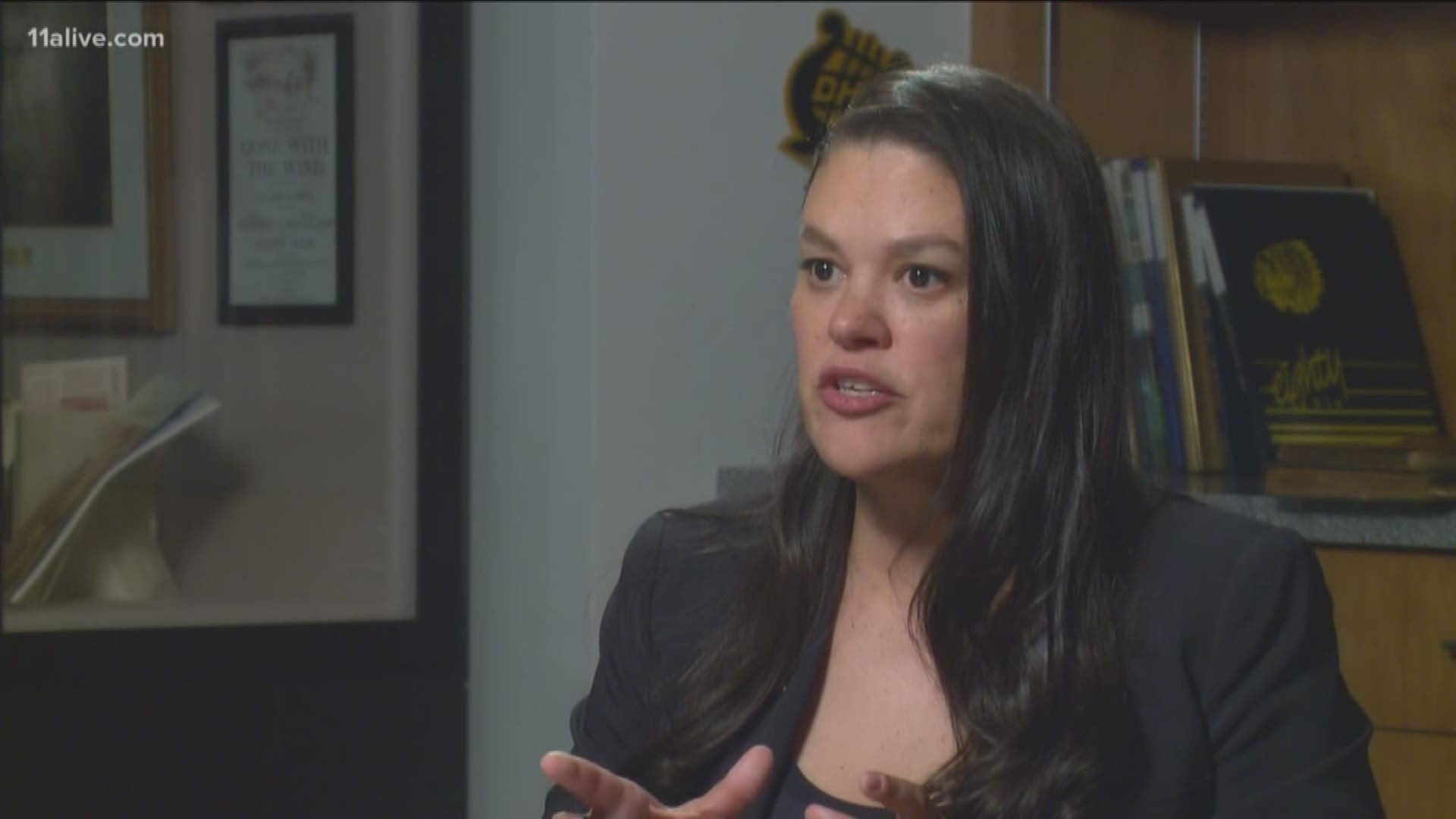ATLANTA — March 7 marks the 54th anniversary of "Bloody Sunday" in Selma, Alabama. The historic day started with a march from Selma to Montgomery for African-American voting rights.
When the marchers crossed the Edmund Pettis Bridge, they were met with billy clubs and tear gas. TV cameras documented it and the world saw what would become known as "Bloody Sunday."
Five years later, a little girl was born in Selma into a family deeply involved in the Civil Rights Movement. She grew up to be a fierce educator who's now leading Atlanta Public Schools.
"A place in history that I should always hold in my heart as an anchor for how I think about my work in public education," APS Superintendent Dr. Meria Carstarphen said.
Her parents told her and her three sisters stories of the people who risked their lives crossing the Edmund Pettis Bridge. The same people they had over for dinner as children.
"My dad would always say before she came to the table, 'don't forget everything you have today is because you're standing on the shoulders of someone before you and they may not be famous, they may not have received the accolades they deserve, but very regular people can make a difference in this world' and you have a responsibility to do the same," she explained.
Dr. Carstarphen said she followed her father's words from a young age and he recognized early on she would go on to make a huge impact.
"I started standing up more for myself," she explained. "I spoke out against the two separate black and white courts when we would do the football games - having a white court and a black court for homecoming."
And that was the beginning of finding her voice fighting for social justice through education. She explained growing up in Selma played a huge role in how she's leading Atlanta Public Schools.
"I think a lot about the grit that Selma put in me - the desire to want to use education to break cycles," she explained. "The cycle of poverty, the cycle of violence, the cycle of illiteracy to use education as a real lever and game changer for what can happen in society."
Dr. Carstarphen said being from a city with a dark history made her connect to Atlanta Public Schools, following one of the largest cheating scandals in the country.
"It is really growing up there that I feel like prepared me psychologically, emotionally so that I would have the head but the heart to do the work for the kids of Atlanta and the families who deserve a fighting chance," she said.
And although the anniversary of the historic march gets more attention on notable years like the 50th anniversary, the educator said Selma will always be a shining light guiding her.
"The dream is alive. The fight isn't over. The work isn't done," she said. "I work in Atlanta public schools. I feel like we're starting from scratch."
Starting from scratch and creating a dream that becomes reality for everyone.
"At some point during any year or any generation, there are going to be the oppressed people. Someone is being treated unfairly and unjustly and that we have an obligation to fight for them even if we aren't of that group," she concluded.


